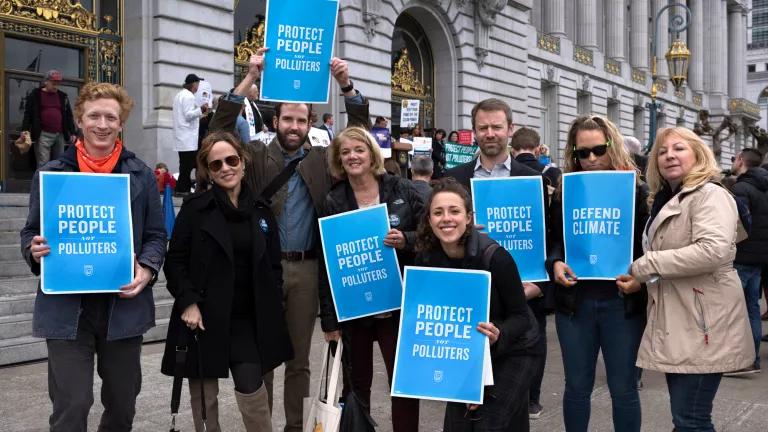Shoot Down Carbon Pollution, Not Climate Messengers

The Trump administration and its allies are trying their best to marginalize the science used to develop the Fourth National Climate Assessment (NCA4). After they attempted to bury the report by releasing it on the Friday afternoon after Thanksgiving, cabinet members like acting EPA Administrator Andrew Wheeler and Interior Secretary Ryan Zinke have thrown red meat to their fossil fuel friends by calling the NCA4 “extreme.”
If only that were true.
The only thing extreme about the NCA4 is how determined our “leaders” in government are to ignore its findings—including by shilling for coal in Poland this week, where most other nations are gathered to constructively address the climate crisis.
The NCA4 is the most studied, juried, moderated, and scientifically-supported kind of assessment that can be done. For one thing, the more than 300 experts who prepared the report spent untold hours responding to thousands of review comments from their peers at 13 federal agencies and the National Academies of Sciences, along with industry and government leaders, health professionals, and absolutely anyone else who took the trouble to thoughtfully provide input. These public comments, including from organizations like NRDC, alerted NCA authors to errors, inconsistencies, and unsupported arguments that needed to be fixed.
For another thing, each of the 29 chapters in the NCA4 has a “Traceable Account” section at the end. These Traceable Accounts detail the process for developing the overall chapter and describe the evidence base, confidence, likelihood, and major uncertainties for every “Key Message” in the report. For example, part of Key Message 2 of Chapter 29 says (emphasis ours):
“In the absence of more significant global mitigation efforts, climate change is projected to impose substantial damages on the U.S. economy, human health, and the environment (very high confidence). Under scenarios with high emissions and limited or no adaptation, annual losses in some sectors are estimated to grow to hundreds of billions of dollars by the end of the century (high confidence).”
And here’s the supporting information from the Traceable Account for Key Message 2 (emphasis ours):
"This Key Message reflects consideration of the findings of several recent multisector modeling projects … released since NCA3. Despite these improvements to quantify the physical and economic impacts of climate change across sectors, uncertainty exists regarding the ultimate timing and magnitude of changes, particularly at local to regional scales.”
In other words, we don’t know the exact dollar figure associated with future climate damages, but we know things will get bad without action.
Very, very bad.

In fact, because it takes so long to produce each National Climate Assessment, the findings are usually a few steps behind the climate hazards wreaking havoc on America. The NCA4 was submitted for final federal review in April 2018. Since then, we’ve seen catastrophic hurricanes in North Carolina and Florida, California’s deadliest and most destructive fire on record, and new scientific papers about 2017’s storms and fires.
If you don’t like the news, don’t shoot the messengers. Instead, do something real and lasting to ensure the story in future National Climate Assessments is about progress to a safer, more prosperous future.
***
Dr. Knowlton served as a non-governmental scientist on the author team of the Third National Climate Assessment (NCA3). She also is a member of the Independent Advisory Committee on Applied Climate Assessment (formerly known as the Federal Advisory Committee for the Sustained National Climate Assessment), a group of scientists and other experts tasked with providing recommendations to help federal, state, and local governments; communities; and the private sector plan for the effects of climate change.




